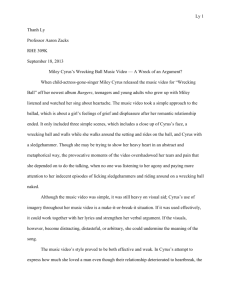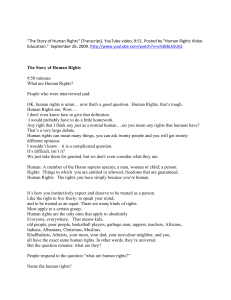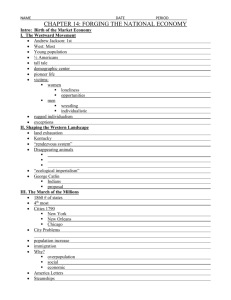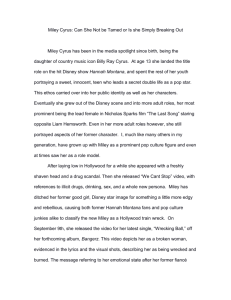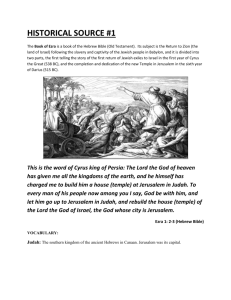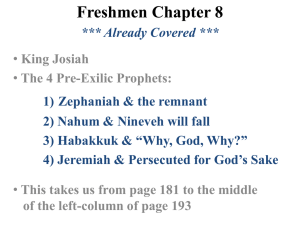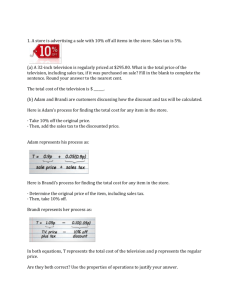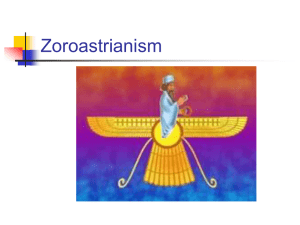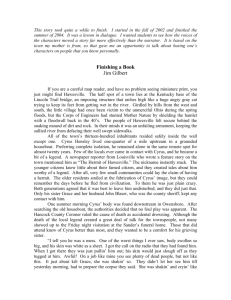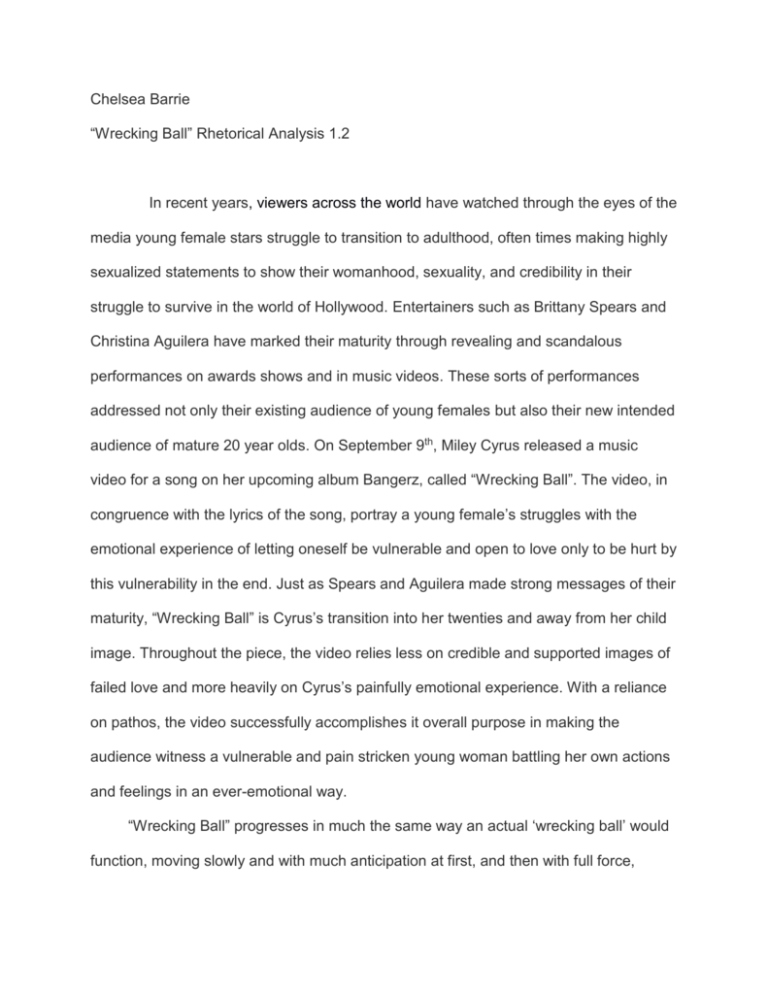
Chelsea Barrie
“Wrecking Ball” Rhetorical Analysis 1.2
In recent years, viewers across the world have watched through the eyes of the
media young female stars struggle to transition to adulthood, often times making highly
sexualized statements to show their womanhood, sexuality, and credibility in their
struggle to survive in the world of Hollywood. Entertainers such as Brittany Spears and
Christina Aguilera have marked their maturity through revealing and scandalous
performances on awards shows and in music videos. These sorts of performances
addressed not only their existing audience of young females but also their new intended
audience of mature 20 year olds. On September 9th, Miley Cyrus released a music
video for a song on her upcoming album Bangerz, called “Wrecking Ball”. The video, in
congruence with the lyrics of the song, portray a young female’s struggles with the
emotional experience of letting oneself be vulnerable and open to love only to be hurt by
this vulnerability in the end. Just as Spears and Aguilera made strong messages of their
maturity, “Wrecking Ball” is Cyrus’s transition into her twenties and away from her child
image. Throughout the piece, the video relies less on credible and supported images of
failed love and more heavily on Cyrus’s painfully emotional experience. With a reliance
on pathos, the video successfully accomplishes it overall purpose in making the
audience witness a vulnerable and pain stricken young woman battling her own actions
and feelings in an ever-emotional way.
“Wrecking Ball” progresses in much the same way an actual ‘wrecking ball’ would
function, moving slowly and with much anticipation at first, and then with full force,
leaving behind a chaotic mess. The video begins with close up filming of Cyrus’s face,
singing the lyrics with the hint of tears running down her cheeks. This beginning is an
effort to make an emotional appeal, drawing on her facial expressions and pain-stricken
eyes to create a feeling of loss and despair. Humans use facial expressions to express
their feelings. In some cases, facial expressions reveal true feelings about a particular
situation, sometimes against our will. By including this close up, the video forces the
viewers to interpret her facial expression without distractions – letting them “feel” the
intensity of her feelings and their underlying emotional meaning. The intense close up
resembles an overly sentimental appeal in that it focuses excessively on her emotional
distress, distracting the viewer from the lyrics and not providing context for her keen
expressions.
The video proceeds to include multiple scenes in a grey, secluded combine
where there is a hanging wrecking ball and stonewalls. The backdrop is contrasted with
Cyrus, dressed only in white undergarments and boots, walking around swinging a
sledgehammer and riding the wrecking ball as it smashes into the stonewalls that
surround it. The lyrics to the song and the elements of the video create a faulty analogy
that a failed relationship, a broken heart, carries with it the same pain inflicted by being
hit by a wrecking ball. The analogy is used for emotional purposes but fails to contrast
the analogy with reality, leaving much room for the viewer to misinterpret the analogy
and the functionality of the video as a supplement to a “meaningful” song.
As the video progresses, the minimal amount of clothing that Cyrus is wearing
disappears completely and she is shown straddling the wrecking ball with no clothes on,
making overtly sexual facial expressions, and licking the sledgehammer. The
provocative visuals, while on the surface appear to be lewd and attention seeking, serve
a figurative purpose in indicating the vulnerability she feels. This figurative purpose of
showing her in this way contributes to Cyrus’s broader purpose in transforming her
image and increasing her credibility as an entertainer. Through this video, Cyrus
transforms into a wacky and self-aware woman who is confident, independent, and free.
This video pushes the boundaries of overt sexuality in music videos, not only alluding to
the naked body, but to physical sexual encounters as well, with her body language and
interaction with objects around her. The video forces the viewer to see Cyrus in such a
sexual way that it is almost uncomfortable to watch. On one hand, Cyrus is seen as an
extremely sexual young woman who is embracing her age and sexuality. On the other
hand, however, Cyrus is seen as a young woman struggling with relationship problems
and heartache. Together these images acknowledge a young females emotional and
physical struggle of getting older.
Taking in the video and it’s effects on the audience, in relation to Cyrus and her
past as a child star who is coming of age and changing her image, the video serves a
much larger purpose in defining Cyrus’s credibility as an entertainer and her character
as a person. The video appeals to ethos, showing Cyrus’s character in terms of her age,
her womanly features, and her expressiveness. The video also gives rise to Cyrus’s
new intended image, a sexual twenty-something female. The nudity and sexualized
nature make the argument that Cyrus has reached a new phase of her career, telling
her audience to view her differently. Her new audience is twenty-something year old
females who can relate to failed relationships and the feeling of heartache. Additionally,
her audience includes all of her former Disney fans, both young and old, who have
watched her grow up. As a daughter of Billy Ray Cyrus, Miley has won the attention of
young boys and girls who watched her teen comedy shows as well as older audiences
who are familiar with her father’s music. Cyrus is ultimately a performer and through this
video she shows her skill range, with sexuality and nudity a mark of a complex act. Her
nudity does not only symbolize her vulnerability in regards to the lyrics, but her
vulnerability to be attacked by the media, the mark of an entertainer that is willing to
take risks. Cyrus’s look including her short hair style, her minimal clothes, and her
tongue ring, and her brown boots, symbolize new age rebellion. Her originality
separates her from other entertainers of her age and contributes to her credibility as a
performer.
Nearing the end of the video, Cyrus expresses increasingly more angry emotions
and more vivid expressions of madness. The gradation of emotions, the final evidence
of her sadness, the concluding lifelessness in her demeanor, all serve thematic
purposes in showing that she has been hurt, broken, just as the walls have been
smashed by the wrecking ball. These thematic elements are complimented by the shock
value of such an erotic video. There need be no explanation for the extremity of this
video because it does just as Cyrus intended: capture an emotional experience, show
her as a sexual being, and transform her child image into an adult performer. In addition
to this, the extremity of this video does what all artists hope for with their music and
videos and that is memorability. Whether one views this video and is admired by
Cyrus’s talents as a performer or is disgusted by her erotica, they damn sure won’t
forget her straddling a wrecking ball with no clothes, no hair, and no care in the world.

